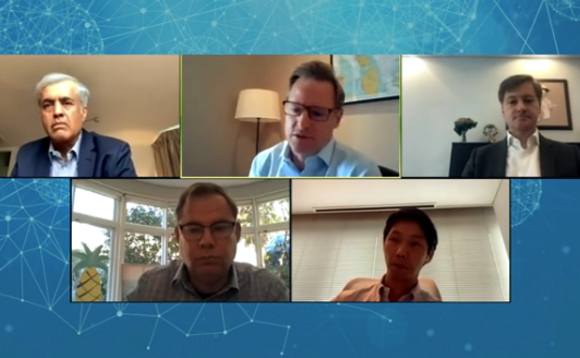
ASEAN to see rise in opportunities despite high valuations – AVCJ Forum

Industry professionals at the AVCJ Southeast Asia Virtual Forum predicted a rise in regional acquisition opportunities although valuations remain stubbornly high for now.
Nearly six months since the onset of COVID-19 in Singapore, Southeast Asia's major economies are still in a brace position. Cases continue to climb while most businesses have taken a hit in revenue across sectors.
There has been state-led financial support of varying degrees across countries, but governments are expected to turn off the liquidity taps soon and let the private sector navigate towards a path to recovery in the next year.
Private equity firms remain cautiously optimistic, although the total number of deals involving PE investment in Southeast Asia fell by 40% in the first half of the year, according to AVCJ Research.
GPs cited challenges in international travel, the uncertain outlook for the future and the need to focus on portfolio management. New deals are being conducted based on existing relationships established before the pandemic. A bottleneck, however, remains the fact that valuations remain high for public and private businesses alike.
Andrew Thompson, head of deal advisory for Asia Pacific at KPMG, remarked that the 2008 financial crisis should serve as a blueprint because fall in EBIDTA for most companies at the time meant they had to accept falls in valuations.
"It's always been hard to sell businesses in Southeast Asia but the succession issue of the next generation not wanting to be involved is real," he said. "Last year, they [owners] wanted a figure 30% above the fair market price."
"What we are hearing from the same set of people is that this has been a brutal experience and they want a fair market price."
A poll was conducted at the end of the panel session to predict the time it would take for a return to normlacy for the economic prospects of the region. Nearly half of the online audience predicted it would take more than a year for the crisis to pass. Only 16% of respondees felt the situation would improve after six months.
Figuring out exactly which deals represent opportunities to invest in businesses that will thrive beyond a 12-month recovery timeframe remains difficult and requires GPs to question their fundamental assumptions about many sectors.
When valuations do come down, it will be up for GPs to spot the right investment opportunities as they become available. Capital flows are expected to rise in the coming years to take advantage of a rising middle class and increased pace of digitization among mid-sized and large companies alike.
"There are a lot of opportunities that still haven't come out yet," said TJ Kono, a partner at Unison Capital. "They will come out in a herd in the near future."
Latest News
Asian GPs slow implementation of ESG policies - survey
Asia-based private equity firms are assigning more dedicated resources to environment, social, and governance (ESG) programmes, but policy changes have slowed in the past 12 months, in part due to concerns raised internally and by LPs, according to a...
Singapore fintech start-up LXA gets $10m seed round
New Enterprise Associates (NEA) has led a USD 10m seed round for Singapore’s LXA, a financial technology start-up launched by a former Asia senior executive at The Blackstone Group.
India's InCred announces $60m round, claims unicorn status
Indian non-bank lender InCred Financial Services said it has received INR 5bn (USD 60m) at a valuation of at least USD 1bn from unnamed investors including “a global private equity fund.”
Insight leads $50m round for Australia's Roller
Insight Partners has led a USD 50m round for Australia’s Roller, a venue management software provider specializing in family fun parks.







